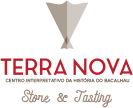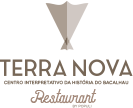We cannot specify the origin of Christmas Eve cod since there are very few references to it in ethnographic works or even in literature itself; however, our loyal friend has been a part of Christmas magic throughout history.
In the Middle Ages, since the Christian calendar had people feast close to the main religious holidays and also forbade meat consumption around the same time, the Portuguese began consuming fish and later on dry codfish, which was easy to access anywhere in the country, turning into the lord of Christmas.
Ramalho Ortigão describes in his book Natal Minhoto the abundance on the table at Christmas Eve in the north of Portugal in spite of its preparation at this time being closer to ‘Provençal Cod’, which was also described by royal cook Lucas Rigaud in 1780.
There have been several references to this dish since then including the codfish and vegetables described by Ferra Junior; A Noite de Natal no Porto by Assis de Carvalho showing the family being close at this time of the year in the company of fish; and O Poveiro by Santos Graça in 1923.
This tradition began in the north of Portugal since other regions preferred a more substantial Christmas eve with meat such as turkey or even pork putting an end to feasting after midnight mass.
In the early 20th century, pork was traditional in Alentejo, pork and chicken soup were traditional in Funchal with a glass of wine at the crack of dawn on Christmas eve, and octopus was served with codfish in the north of Portugal.
After the revolution of 1820, codfish became common in restaurants and eating houses and was almost mandatory in every social meal, gathering, or get-together.
Its consumption seems to have become popular after World War II since the supply of codfish was regulated by the Estado Novo dictatorial regime. After codfish arrived in the country this way, TV also boosted the regime's propaganda reflecting on this dish the humility and simplicity that the Portuguese people ought to have.
Nowadays, a family gathering obviously requires a substantial meal. In contrast to the modest origin of this dish, it suits the origin of the Portuguese word Consoada (Christmas Eve dinner) that comes from the Latin consolata meaning ‘comfort’.
Also known as Bacalhau com Todos (Codfish with everything), this recipe is not inspired or in need of innovation. It provides any Portuguese person with traditional comfort at any time of the year but the flavour of togetherness makes it that special on Christmas Eve. On the 24th it does not matter where a Portuguese person may be, or the time difference, codfish will be their loyal companion.
The vegetables you use will differ depending on the region and you can add the famous olive oil and vinegar sauce of the north.
Boil the soaked codfish fillets together with kale. Boil the unpeeled potatoes in a different pot and also boil an egg per person in a different pot. Peel the potatoes and eggs before serving. You can serve them together or in separate containers. Prepare everything last minute so that it is served hot.
Preparing the sauce: Heat a portion of olive oil – about 0.5dl (0.08pt) per person – with a few cloves of garlic cut in half. When it begins to boil remove from the stove and add a little bit of vinegar. Serve in a gravy boat.
Antónia Lopes, M. (2012). Os alimentos nos rituais familiares portugueses (1850-1950).
Costa, N. M. (n.d.). O Bacalhau da Ceia de Natal. Museu Marítimo de ílhavo.
Mistério, C. (2016). O que os portugueses comiam no natal há 100 anos. Acedido a 14 de Março de 2020.
Modesto, M. de L. (1990). Cozinha Tradicional Portuguesa. Lisboa: Editorial Verbo, p.16
Público. (2009). O Natal nunca foi igual. A consoada tornou-se mais "nacional". Acedido a 14 de Março de 2020.
Rodrigues, D. (1637). Arte de Cozinha. Lisboa: Oficina da Viúva de Lino da Silva Godinho.
Sabores, J. dos. (n.d.). Porque se come bacalhau no Natal? - Jornal Sabores. Acedido a 14 de Março de 2020.











